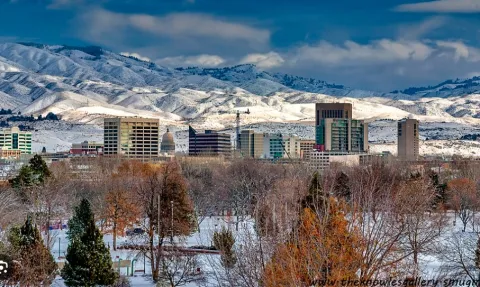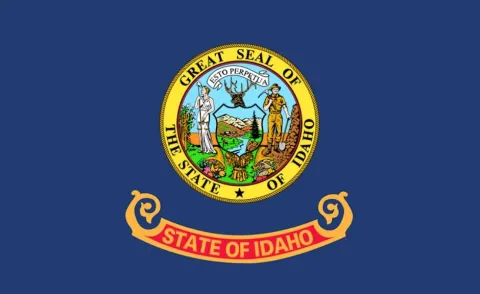
Idaho has become an increasingly popular destination for retirees seeking a peaceful, fulfilling, and affordable lifestyle. Nestled in the Pacific Northwest, this state offers a unique blend of natural beauty, small-town charm, and a range of amenities that make it an attractive option for those in their golden years. This article explores key aspects of life in Idaho for retirees, including overall quality of life, cost of living, crime and safety, access to quality healthcare, weather, and culture, with comparisons to national averages.
Idaho's overall quality of life is highly regarded, particularly for retirees. The state boasts breathtaking landscapes, from the Rocky Mountains to expansive forests and rivers. Outdoor enthusiasts will find plenty of activities, including hiking, fishing, and skiing. Idaho's small towns and cities offer a friendly, community-oriented atmosphere, often with a slower pace of life that appeals to many retirees.
Compared to the national average, Idaho residents enjoy a high quality of life, thanks in part to the state's low population density and natural beauty. The state ranks well in terms of public safety, environmental quality, and overall satisfaction.
Cost of living in Idaho is generally lower than the national average. Housing costs, in particular, are more affordable, with median home prices significantly below those in many other states. Retirees can find a range of housing options, from single-family homes to retirement communities.
Other expenses, such as groceries, utilities, and healthcare, are also relatively low. The state's tax policies are friendly to retirees, with no taxes on Social Security benefits and relatively low property taxes. Overall, Idaho offers a cost-effective lifestyle that allows retirees to stretch their retirement savings further.
Crime and safety are important considerations for retirees, and Idaho generally ranks as one of the safer states in the U.S. According to the latest data, the state has a lower crime rate than the national average, with particularly low rates of violent crime. Property crime rates are also below average, contributing to a sense of security among residents.
The state's smaller cities and rural areas tend to be especially safe, with tight-knit communities and a strong emphasis on law enforcement. This overall low crime rate makes Idaho an attractive destination for retirees looking for peace of mind.
Access to quality healthcare is a critical factor for retirees. Idaho offers a range of healthcare options, with hospitals and medical facilities in major cities like Boise, Idaho Falls, and Coeur d'Alene. The state is home to several well-regarded medical centers, including St. Luke's Health System and Kootenai Health.
However, Idaho does face some challenges in healthcare access, particularly in rural areas where facilities and specialists may be limited. Compared to the national average, Idaho has fewer healthcare providers per capita, which can result in longer wait times and travel distances for specialized care. Despite these challenges, many retirees find the healthcare system in Idaho to be sufficient, especially if they live in or near urban centers.
Idaho's overall tax burden is moderate compared to other U.S. states. The state imposes a mix of income, property, and sales taxes, with income tax rates that are somewhat progressive. Idaho's property taxes are relatively low, which helps keep the overall tax burden in check. However, the state's sales tax is higher than the national average, contributing a significant portion to the total tax burden.
When compared to other states, Idaho falls in the middle range for overall tax burden, making it neither among the most tax-friendly nor the most heavily taxed states. Its balanced approach to taxation provides a competitive environment for residents and businesses alike, with a total tax burden that is generally considered reasonable within the broader context of U.S. state taxation.
Idaho offers a compelling mix of natural beauty, affordability, safety, and cultural richness, making it an appealing destination for retirees. While the state has some limitations in healthcare access and may experience more extreme weather conditions than some might prefer, its overall quality of life and low cost of living are significant draws. For those seeking a peaceful, scenic, and community-oriented place to spend their retirement years, Idaho is certainly worth considering.
Weather in Idaho varies significantly by region, offering something for everyone. The state's climate ranges from semi-arid in the southern regions to alpine in the mountainous areas. Summers are generally warm and dry, while winters can be cold and snowy, particularly in the northern and higher elevation areas.
Compared to the national average, Idaho experiences more pronounced seasonal changes. Retirees who enjoy outdoor activities can take advantage of the state's diverse weather, with opportunities for winter sports and summer recreation. However, those who prefer milder climates year-round may need to consider which part of the state best suits their preferences.
Idaho offers a compelling mix of natural beauty, affordability, safety, and cultural richness, making it an appealing destination for retirees. While the state has some limitations in healthcare access and may experience more extreme weather conditions than some might prefer, its overall quality of life and low cost of living are significant draws. For those seeking a peaceful, scenic, and community-oriented place to spend their retirement years, Idaho is certainly worth considering.




